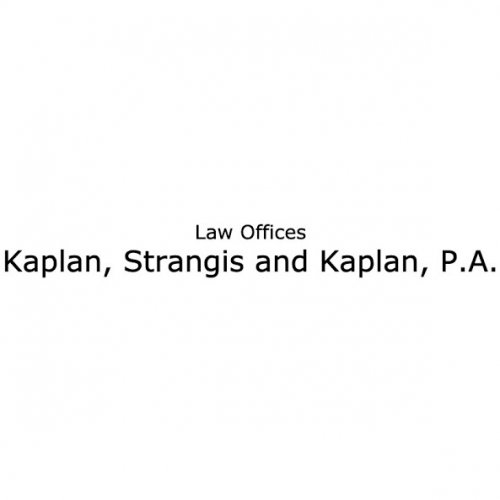Best Government Relations & Lobbying Lawyers in Minneapolis
Share your needs with us, get contacted by law firms.
Free. Takes 2 min.
List of the best lawyers in Minneapolis, United States
About Government Relations & Lobbying Law in Minneapolis, United States
Government Relations and Lobbying law in Minneapolis involves the interaction between organizations, lobbyists, and governmental entities. This field focuses on influencing policy-making and legislation at the local, state, and federal levels. In Minneapolis, like other U.S. cities, lobbying is a regulated activity, and lawyers in this field assist clients in navigating these complex relationships and ensuring compliance with applicable laws.
Why You May Need a Lawyer
There are several scenarios where legal assistance in government relations and lobbying may be essential. These include:
- Navigating the regulations governing lobbying and compliance with municipal, state, or federal laws.
- Assisting in the registration of lobbying entities or individuals.
- Advising on legal implications of lobbying strategies and tactics.
- Preparing and submitting necessary disclosures and reports to the Minneapolis city authorities.
- Addressing any allegations of improper influence or unethical lobbying practices.
- Understanding the implications of the “pay-to-play” laws and other ethical guidelines.
Local Laws Overview
In Minneapolis, lobbying is primarily regulated by local and state laws that require transparency and accountability. Key aspects include:
- Registration requirements for lobbyists, which mandate disclosure of their identity, financial transactions, and subjects of lobbying.
- Reporting requirements that specify periodic submissions of lobbying activities.
- Restrictions on gifts and contributions to government officials aimed at preventing undue influence.
- The Minnesota Campaign Finance and Public Disclosure Board oversees the administrative regulations surrounding these activities.
- Compliance with ethical standards to avoid conflicts of interest and promote public trust.
Frequently Asked Questions
What qualifies someone as a lobbyist in Minneapolis?
A lobbyist is generally anyone who engages in activities intended to influence public officials, particularly with regard to legislation or policy-making. They must register and report their activities according to specific guidelines.
Are there any restrictions on gifts to public officials in Minneapolis?
Yes, local laws restrict the types of gifts that can be given to public officials to prevent conflicts of interest and corruption. These laws are part of ethics regulations that lobbyists and their clients must follow.
Do I need to register as a lobbyist even if I am volunteering?
Yes, volunteer lobbyists are often required to register if they meet specific criteria, such as the amount of time spent lobbying or the nature of their interactions with public officials.
How often must lobbyists report their activities?
Lobbyists typically must file reports monthly or quarterly, detailing expenditures and subject areas of influence, depending on the jurisdiction's specific requirements.
What penalties exist for failing to comply with lobbying laws in Minneapolis?
Penalties may include fines, revocation of lobbying privileges, or both. Severe violations may lead to legal action by authorities or reputational damage for the lobbying entity involved.
Can a non-profit organization engage in lobbying in Minneapolis?
Yes, non-profit organizations can engage in lobbying, but they must adhere to the same registration and reporting requirements as other entities, ensuring transparency and compliance with applicable laws.
Are there any online resources for understanding Minneapolis lobbying laws?
Yes, resources such as the Minnesota Campaign Finance and Public Disclosure Board website provide comprehensive guides and tools for understanding and complying with lobbying laws.
What are "pay-to-play" laws?
These laws are designed to prevent corruption by prohibiting or limiting political contributions from individuals or entities seeking or holding government contracts. Understanding these is crucial for avoiding legal pitfalls.
Is it necessary to hire a lawyer for lobbying activities?
While not mandatory, consulting a lawyer ensures that you navigate complex legal requirements effectively and avoid any compliance issues that could arise from lobbying activities.
What resources are available for understanding federal lobbying laws?
The U.S. Congress and Federal Election Commission websites offer valuable information and guidelines on federal lobbying requirements and compliance.
Additional Resources
Several resources can provide guidance and support for those needing legal advice in Government Relations & Lobbying:
- Minnesota Campaign Finance and Public Disclosure Board
- Minneapolis Ethics Office
- U.S. Congress
- State of Minnesota Legislative Reference Library
- Local law firms specializing in government relations and lobbying
Next Steps
If you require legal assistance in Government Relations & Lobbying, consider the following steps:
- Identify and consult with a specialized attorney who understands local, state, and federal lobbying laws.
- Prepare a summary of your current or intended lobbying activities for the lawyer's reference.
- Ensure you have all necessary documentation, such as registration forms, correspondence with public officials, and financial records.
- Stay informed and updated on all relevant laws and regulations to maintain compliance.
- Consider attending workshops or seminars on lobbying law to stay educated and proactive in your approach.
Lawzana helps you find the best lawyers and law firms in Minneapolis through a curated and pre-screened list of qualified legal professionals. Our platform offers rankings and detailed profiles of attorneys and law firms, allowing you to compare based on practice areas, including Government Relations & Lobbying, experience, and client feedback.
Each profile includes a description of the firm's areas of practice, client reviews, team members and partners, year of establishment, spoken languages, office locations, contact information, social media presence, and any published articles or resources. Most firms on our platform speak English and are experienced in both local and international legal matters.
Get a quote from top-rated law firms in Minneapolis, United States — quickly, securely, and without unnecessary hassle.
Disclaimer:
The information provided on this page is for general informational purposes only and does not constitute legal advice. While we strive to ensure the accuracy and relevance of the content, legal information may change over time, and interpretations of the law can vary. You should always consult with a qualified legal professional for advice specific to your situation.
We disclaim all liability for actions taken or not taken based on the content of this page. If you believe any information is incorrect or outdated, please contact us, and we will review and update it where appropriate.














